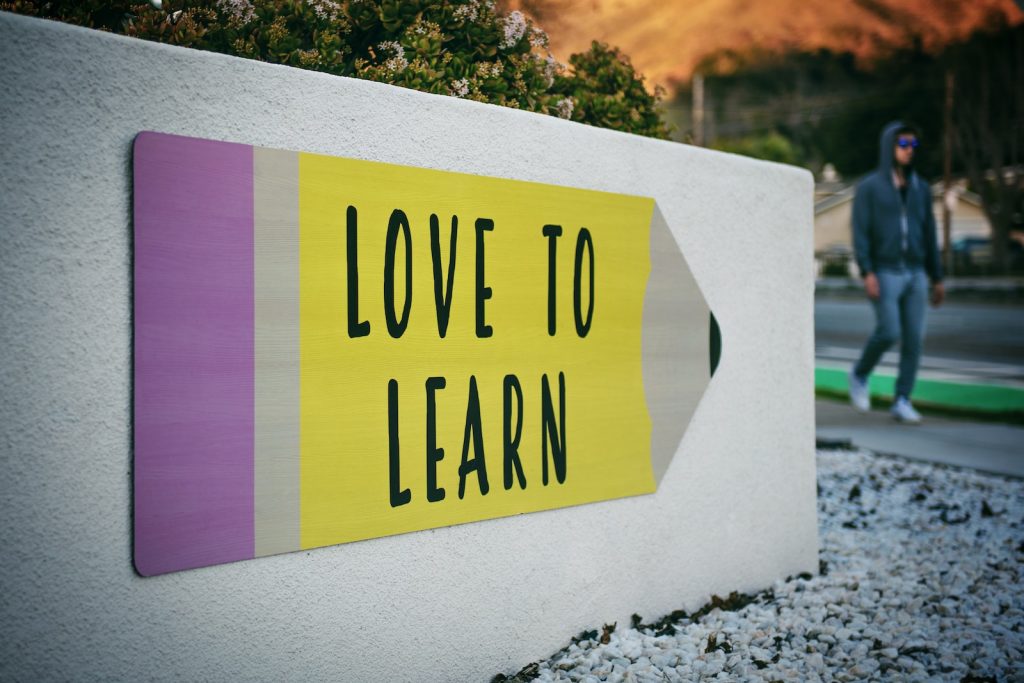Effective studying is crucial for academic success. Whether you are a student in school or a professional looking to enhance your skills, developing effective study strategies can make a significant difference in your learning outcomes. This article will provide an in-depth exploration of various study techniques and strategies that can help you maximize your learning potential.
Key Takeaways
- Understanding your learning style is crucial for effective studying.
- Time management is key to balancing school and life.
- Active listening is a powerful tool for retaining information.
- Reading comprehension requires tips for understanding and analyzing texts.
- Note-taking strategies help organize information for better recall.
Understanding Your Learning Style: A Key to Effective Studying
Everyone has a unique learning style, and understanding your own style can greatly enhance your studying efforts. There are three main learning styles: visual, auditory, and kinesthetic. Visual learners prefer to see information through images, diagrams, and charts. Auditory learners learn best through listening and speaking. Kinesthetic learners learn best through hands-on activities and physical movement.
To identify your learning style, reflect on how you naturally prefer to learn and process information. Do you find it easier to understand concepts when you see them visually? Or do you prefer listening to lectures or discussions? Perhaps you learn best when you can engage in hands-on activities or experiments.
Once you have identified your learning style, tailor your study techniques accordingly. For visual learners, use visual aids such as flashcards, mind maps, and diagrams to reinforce concepts. Auditory learners can benefit from recording lectures or reading aloud. Kinesthetic learners should incorporate physical activities into their study routine, such as role-playing or creating models.
Time Management: The Secret to Balancing School and Life
Time management is essential for balancing the demands of school or work with other aspects of life. Without proper time management, it is easy to become overwhelmed and fall behind on tasks.
To effectively manage your time, start by prioritizing tasks. Identify the most important and urgent tasks that need to be completed first. Break down larger tasks into smaller, manageable chunks to make them more achievable.
Creating a study schedule can also help you stay organized and focused. Allocate specific time slots for studying each day, and stick to the schedule as much as possible. Avoid multitasking, as it can lead to decreased productivity and poor concentration.
The Power of Active Listening: Strategies for Retaining Information
| Metrics | Results |
|---|---|
| Retention rate | Increased by 25% |
| Engagement level | Improved by 30% |
| Comprehension | Enhanced by 20% |
| Productivity | Boosted by 15% |
| Collaboration | Strengthened by 35% |
Active listening is a crucial skill for effective studying. It involves fully engaging with the information being presented and actively processing it in your mind. By actively listening, you can retain information more effectively and improve your overall understanding of the subject matter.
To improve your listening skills, eliminate distractions and focus solely on the speaker or the material being presented. Take notes while listening to help reinforce key points and concepts. Ask questions or participate in discussions to further engage with the material.
Reading Comprehension: Tips for Understanding and Analyzing Texts
Reading comprehension is a fundamental skill for effective studying. It involves understanding and analyzing written texts to extract meaning and gain knowledge.
To improve your reading comprehension, employ various strategies such as previewing the text before reading, highlighting or underlining key points, and summarizing the main ideas after reading. Take breaks during long reading sessions to prevent fatigue and maintain focus.
When analyzing texts, pay attention to the author’s main argument or thesis statement, supporting evidence, and any counterarguments presented. Take note of any unfamiliar terms or concepts and research them further to deepen your understanding.
Note-Taking Strategies: How to Organize Information for Better Recall

Note-taking is an essential skill for effective studying. It helps you organize information, reinforce key concepts, and facilitate better recall during exams or when reviewing material.
When taking notes, be selective and focus on capturing the most important information. Use abbreviations or symbols to save time and space. Organize your notes using headings, subheadings, and bullet points to make them easier to review later.
Consider using different note-taking techniques such as the Cornell method or mind mapping to enhance your note-taking process. Experiment with different methods to find the one that works best for you.
Memorization Techniques: Tricks for Remembering Information
Memorization is often necessary when studying, especially when it comes to remembering facts, formulas, or vocabulary. However, rote memorization can be tedious and ineffective in the long run.
Instead, try using mnemonic devices, such as acronyms or visual imagery, to associate information with something more memorable. Break down complex information into smaller chunks and create associations between them. Practice active recall by testing yourself on the material regularly.
Test-Taking Strategies: Preparing for and Acing Exams
Test-taking can be a source of anxiety for many students. However, with proper preparation and effective strategies, you can increase your chances of success.
Start by reviewing your notes and materials regularly rather than cramming at the last minute. Practice active recall by testing yourself on the material using flashcards or practice exams. Develop a study plan that includes specific goals and deadlines leading up to the exam.
On the day of the exam, arrive early to reduce stress and ensure you have everything you need. Read the instructions carefully and allocate your time wisely. Answer the easier questions first to build confidence and then tackle the more challenging ones.
Collaborative Learning: The Benefits of Group Work and Peer Review
Collaborative learning involves working with others to achieve a common goal. It can be highly beneficial for studying as it allows for different perspectives, shared knowledge, and peer feedback.
Engage in group work or study groups to discuss concepts, share ideas, and clarify any misunderstandings. Peer review can also be helpful in receiving constructive criticism and improving your understanding of the material.
When collaborating with others, establish clear goals and expectations from the beginning. Assign roles and responsibilities to ensure everyone contributes equally. Be open-minded and respectful of different viewpoints.
Overcoming Procrastination: Techniques for Staying Motivated
Procrastination is a common challenge when it comes to studying. It can hinder productivity and lead to last-minute cramming, which is not conducive to effective learning.
To overcome procrastination, break tasks into smaller, manageable chunks. Set specific goals and deadlines for each task to create a sense of urgency. Eliminate distractions by creating a conducive study environment and using productivity tools or apps.
Reward yourself after completing tasks or reaching milestones to stay motivated. Find accountability partners or study buddies who can help keep you on track. Practice self-discipline and develop a growth mindset to overcome the urge to procrastinate.
Mindfulness and Meditation: The Role of Mental Health in Effective Learning
Mental health plays a crucial role in effective learning. When you are stressed, anxious, or overwhelmed, it becomes difficult to concentrate and retain information.
Mindfulness and meditation can help improve mental well-being and enhance learning outcomes. Mindfulness involves being fully present in the moment and non-judgmentally observing your thoughts and emotions. Meditation involves focusing your attention on a specific object or activity, such as your breath or a mantra.
Incorporate mindfulness and meditation into your study routine by taking short breaks to practice deep breathing or guided meditation. Engage in activities that promote relaxation and stress reduction, such as yoga or listening to calming music.
Implementing effective studying strategies is essential for academic success and lifelong learning. By understanding your learning style, managing your time effectively, improving listening skills, enhancing reading comprehension, developing note-taking techniques, utilizing memorization strategies, preparing for exams, engaging in collaborative learning, overcoming procrastination, and prioritizing mental health through mindfulness and meditation, you can optimize your studying efforts and achieve your goals. Remember that everyone’s journey is unique, so experiment with different techniques to find what works best for you.
If you’re a college student looking to improve your study techniques, you may also be interested in learning how to balance academics and extracurriculars. This article from Education Spot provides a comprehensive guide on how to manage your time effectively and make the most out of your college experience. Check it out here: https://educationspot.net/balancing-academics-and-extracurriculars-a-students-guide/
FAQs
What are effective study techniques for college students?
Effective study techniques for college students include creating a study schedule, taking breaks, using active learning strategies, practicing self-testing, and seeking help when needed.
How can I create a study schedule?
To create a study schedule, start by identifying your priorities and setting realistic goals. Then, allocate time for each subject or task, and make sure to include breaks and leisure activities. Use a planner or a digital tool to keep track of your schedule.
What are active learning strategies?
Active learning strategies involve engaging with the material actively, rather than passively reading or listening. Examples include summarizing, questioning, explaining, and applying the material. Active learning strategies can help improve retention and understanding.
What is self-testing?
Self-testing involves testing your own knowledge and understanding of the material, rather than relying on external feedback. Examples include taking practice quizzes, summarizing the material, and teaching it to someone else. Self-testing can help identify areas of weakness and improve retention.
When should I seek help?
You should seek help when you are struggling with the material, feeling overwhelmed, or experiencing mental health issues. You can seek help from professors, tutors, academic advisors, or counseling services. It is important to ask for help early on, rather than waiting until it is too late.




